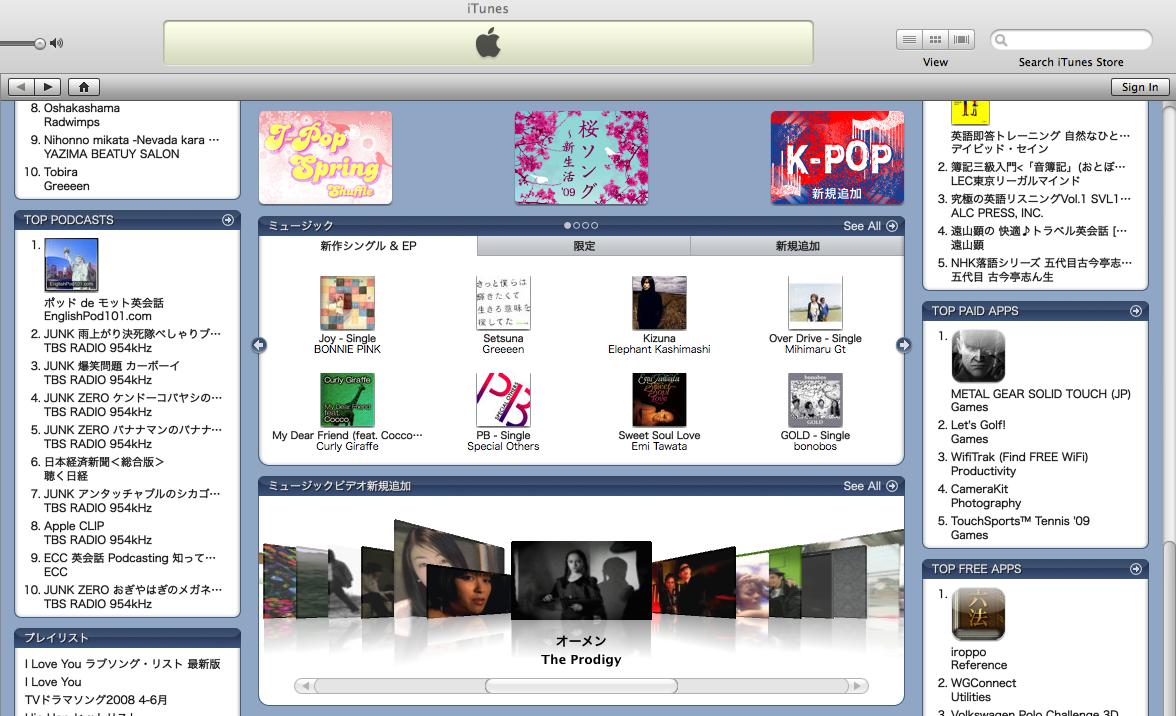K-Pop Branches Out | Content Aggregator Brings Korean Artists To iTunes
 Saturday, March 28, 2009 at 9:53AM |
Saturday, March 28, 2009 at 9:53AM |  DFSB Kollective
DFSB Kollective (NEW YORK CITY USA) : In a bid to extend the global reach of South Korean recording artists, the Seoul creative agency DFSB Kollective has signed worldwide digital distribution deals with about 50 of the country's leading alternative rock, hip-hop and electronic acts.
As part of these deals, DFSB will supply these artists' works to Apple's iTunes store, which doesn't yet sell music downloads in South Korea. The distribution deals come at the same time a pending regulatory change that will make it easier for foreign smart-phone makers to sell handsets in the Korean market has spurred speculation that Apple could be preparing to launch the iPhone. And that, in turn, could facilitate the arrival of iTunes music downloads in Korea.
Apple representatives declined to comment on their plans for the Korean market.
"Although K-pop availability on iTunes will attract the large overseas Korean populations in North America, Japan and Australia," DFSB president Bernie Cho says, "our main aim is to deliver a dynamic, diverse lineup of Korean artists from a wide range of music genres that will appeal to music fans around the world."
 DFSB will distribute new albums by such artists as Epik High, South Korea's best-selling hip-hop act last year; R&B singer Tasha; and the alternative rock trio Seoul Electric Band, as well as 2008 Korean Music Award winners Drunken Tiger (hip-hop), House Rulez (electronica) and No Brain (modern rock).
DFSB will distribute new albums by such artists as Epik High, South Korea's best-selling hip-hop act last year; R&B singer Tasha; and the alternative rock trio Seoul Electric Band, as well as 2008 Korean Music Award winners Drunken Tiger (hip-hop), House Rulez (electronica) and No Brain (modern rock).
During the past decade, more commercially oriented Korean teen idols and urban/dance acts have succeeded in building burgeoning regional fan bases, particularly in Hong Kong, Taiwan, southeast Asia and Japan. But outside of regional stars like Rain, Se7en and BoA, few Korean artists have been able to secure overseas label deals or distribution.
"In the past, trying to sell K-pop music abroad involved jumping through many hoops and hurdles," Cho says, adding that by getting DFSB client artists on iTunes, they will have "a more efficient, effective way to boost their success beyond Korea."
 A fresh supply of more independent-minded music from South Korea raises anew the question of when iTunes will finally enter the Korean music download market, which has been dominated by such local telecom companies as SK Telecom and KTF. iTunes' retail presence in Korea is limited to its App Store, which local consumers have been using to download applications for the popular iPod Touch.
A fresh supply of more independent-minded music from South Korea raises anew the question of when iTunes will finally enter the Korean music download market, which has been dominated by such local telecom companies as SK Telecom and KTF. iTunes' retail presence in Korea is limited to its App Store, which local consumers have been using to download applications for the popular iPod Touch.
A development that could potentially hasten iTunes' entry into the Korean music market is the South Korean government's plans to repeal April 1 a requirement that all Internet-enabled mobile handsets use the local WIPI (wireless Internet platform for interoperability) application platform, which could clear the way for Apple to launch the iPhone in Korea.
The WIPI requirement was aimed at providing mobile content providers with interoperability across all mobile handsets and, critics claim, protecting domestic companies from foreign competition. Because it's unique to South Korea, WIPI effectively blocked the market entry of the iPhone and foreign-made smart phones, according to Stan Jung, a telecom industry analyst at Woori Investment & Securities in Seoul.
Jung says there is pent-up demand for the iPhone among gadget-crazy Korean consumers, adding that "an iPhone launch in Korea will have a huge impact for iTunes and the iPod."
International K-Pop Distribution : DFSB Kollective
 Content
Content 
